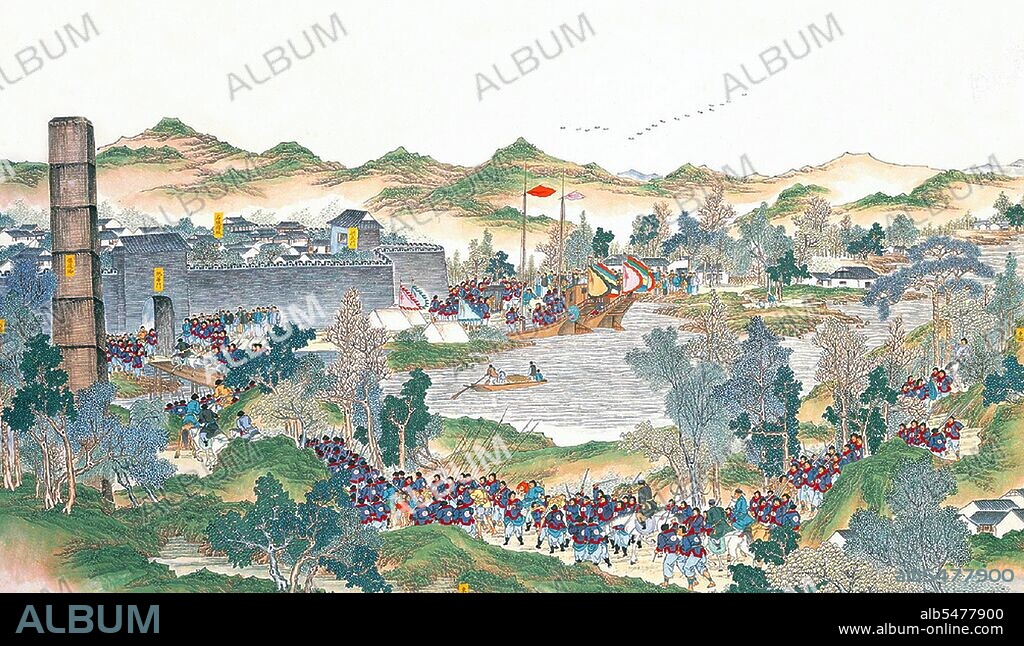alb5477900
China: The capture of Hong Fuzhen (Taiping Rebellion,1850-1864)

|
Añadir a otro lightbox |
|
Añadir a otro lightbox |



¿Ya tienes cuenta? Iniciar sesión
¿No tienes cuenta? Regístrate
Compra esta imagen

Título:
China: The capture of Hong Fuzhen (Taiping Rebellion,1850-1864)
Descripción:
Ver traducción automática
The Taiping Rebellion was a widespread civil war in southern China from 1850 to 1864, led by heterodox Christian convert Hong Xiuquan, who, having received visions, maintained that he was the younger brother of Jesus Christ, against the ruling Manchu-led Qing Dynasty. About 20 million people died, mainly civilians, in one of the deadliest military conflicts in history. Hong established the Taiping Heavenly Kingdom with its capital at Nanjing. The Kingdom's army controlled large parts of southern China, at its height containing about 30 million people. The rebels attempted social reforms believing in shared 'property in common' and the replacement of Confucianism, Buddhism and Chinese folk religion with a form of Christianity. The Taiping troops were nicknamed 'Longhairs' (simplified Chinese: ??; traditional Chinese: ??; pinyin: Chángmáo) by the Qing government. The Taiping areas were besieged by Qing forces throughout most of the rebellion. The Qing government crushed the rebellion with the eventual aid of French and British forces. In the 20th century, Sun Yat-sen, founder of the Chinese Nationalist Party, looked on the rebellion as an inspiration, and Chinese paramount leader Mao Zedong glorified the Taiping rebels as early heroic revolutionaries against a corrupt feudal system.
Crédito:
Album / Pictures From History/Universal Images Group
Autorizaciones:
Modelo: No - Propiedad: No
¿Preguntas relacionadas con los derechos?
¿Preguntas relacionadas con los derechos?
Tamaño imagen:
5100 x 2953 px | 43.1 MB
Tamaño impresión:
43.2 x 25.0 cm | 17.0 x 9.8 in (300 dpi)
Palabras clave:
ART • ARTE • ARTES • ASIA • ASIATICO • CHINA • CHINO • COLONIALISMO • CONFLICTO BELICO • GUERRA • HISTORIA • HISTORICO • IMPERIALISMO • INSURRECCION TAIPING • MANCHU • MILITAR • PINTURA • PORCELANA • RELIGION • WAR
 Pinterest
Pinterest Twitter
Twitter Facebook
Facebook Copiar enlace
Copiar enlace Email
Email
